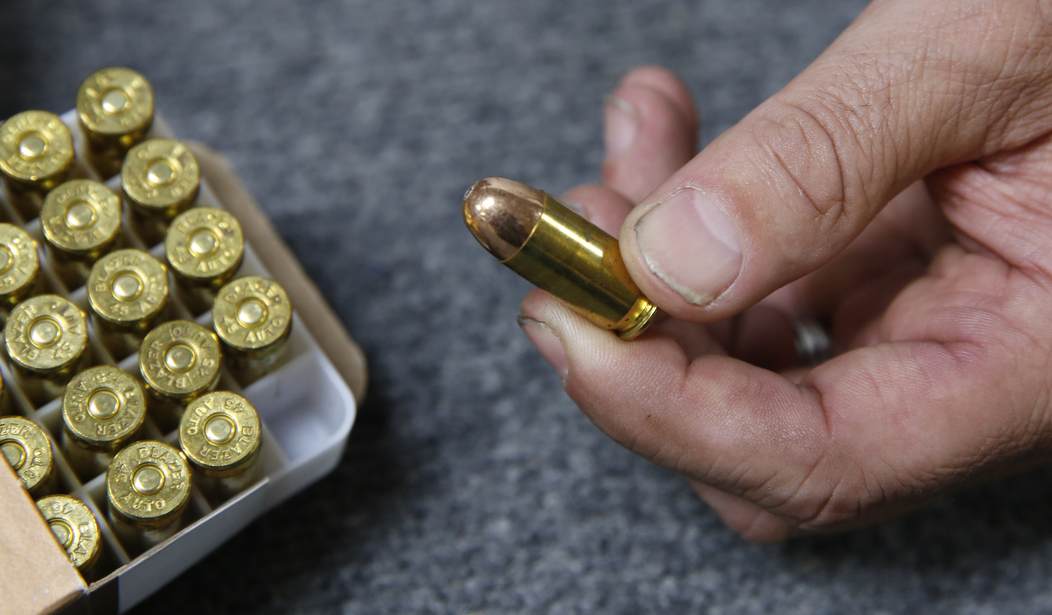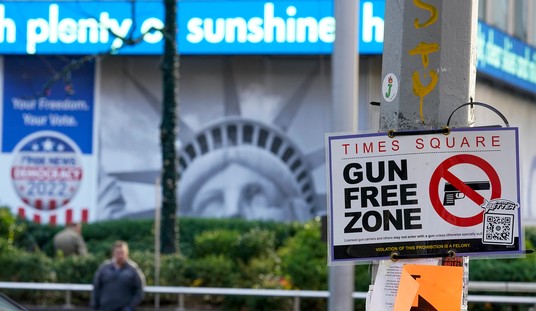Gun control activists in New York are hoping to use the spike in shootings and homicides as an excuse to impose new restrictions on the right to keep and bear arms, and gun owners got a preview of what could be in store for them on Thursday when lawmakers convened a meeting to talk over some of their bad ideas.
While the focus of the committee hearing was ostensibly about reducing violent crime, it was clear that guns were the focus for the Democratic legislators and anti-2A activists on hand. Several police commissioners testified about the need to change New York’s bail reform laws instead of talking up strategies aimed at legal gun owners, but were met with a wave of criticism in response.
Rebecca Fischer with New Yorkers Against Gun Violence says it was inappropriate of the police commissioners to bring up unfounded claims about bail reform at a hearing focused on the rise in shootings across the state.
Fischer urged lawmakers to focus on gun violence as a public health issue and direct resources to tackle the root causes.
“Recidivism and the issue with repeat offenders is really not related in any way to the spike in gun violence,” Fischer said. “It was off topic, inappropriate and frankly, false. Since the outbreak of COVID-19, there has been a dramatic uptick in shootings and we need to do more to reduce those shootings.”
Among the many problems with Fischer’s argument is her focus exclusively on “gun violence.” The issue that lawmakers should be addressing is violence in general. By focusing exclusively on the gun Fischer and her anti-gun allies in the New York Assembly are telling residents that if you’re stabbed to death by a repeat offender, it’s not their concern. If your loved one is murdered in a mugging when she’s shoved to the ground and hits her head, that’s okay. At least it wasn’t “gun violence.”
So, with their myopic focus on firearms, what did lawmakers come up with? There were demands to impose a lot of California-style gun control law, including microstamping, but one of the biggest issues to emerge was a provision of the SAFE Act passed back in 2013 that’s never gone into effect.
A database that is geared toward tracking gun ammunition sales was a key part of the SAFE Act that passed in 2013.
Fast forward eight years later, there is still no database and no clear path on when that will be launched.
Key agencies that would be in charge of the database and other gun safety measures did not show up to a state Assembly hearing that focused on when this database might be implemented.
This includes the New York State Police, the Office of Information Technology Services and the Division of Criminal Justice Services.
The chair of the committee holding the hearing, Assemblyman Jeffrey Dinowitz, said he is not ruling out subpoenas in the future.
“We intend to press officials of these agencies on the reasons for the continued delay in establishing the ammunition database,” Dinowitz said. “We could very well be resuming this hearing at a later date this year, and we will consider subpoenas, if necessary.”
Now, Dinowitz isn’t talking merely about a database of ammunition purchases, which would be bad enough. According to the SAFE Act, all ammunition purchases in New York are supposed to go through a background check. The reason why that hasn’t been implemented in the past eight years is simple; the requirement was suspended in 2015.
The memorandum of understanding (MOU), which mirrors part of a SAFE Act reform bill passed in the Senate, has been signed by Senator Flanagan and Jim Malatros, Governor Cuomo’s Director of State Operations.
The deal is the result of intense three-way negotiations between the Governor, Senate and Assembly at the end of session, which wrapped up on June 25 with the passage of an omnibus bill that renewed the property tax cap and New York City’s rent laws, expanded property tax rebate checks for homeowners, and reformed Common Core and teacher evaluations.
Senator Flanagan repeatedly pushed for statutory SAFE Act reforms during the talks, but was blocked by Assembly Speaker Carl Heastie of the Bronx, who refused to agree, said Senator Young.
As a result, a two-way agreement between the Governor and Senate was formed. Under the signed document, the yet-to-be-established statewide system is suspended, “no certification of the Database as operational shall be made by the superintendent of the state police,” and “no expenditures of state monies shall be allocated for the purposes of purchasing and installing software, programming and interface required to transmit any record for the purpose of performing an eligibility check” for buying ammunition unless both parties agree to proceed. Gun purchasers will continue to undergo a federal background check.
The MOU formally halts the ammunition background check, even though Speaker Heastie is not a co-signer. Senate Republicans have been successful in removing ammunition database allocations proposed by the Governor in state budgets, but sought a more official solution, according to Senator Young.
“This agreement is a victory for every law-abiding gun owner and our hardworking, overburdened state taxpayers. The ammunition database and background check requires unproven technology that doesn’t exist, and establishing it would have cost the state up to $100 million, which would be a colossal waste of tax dollars,” Senator Young said.
The odds of Assemblyman Dinowitz being unaware of this agreement are close to zero, yet he pretended that the failure to impose the ammunition background checks lies with state agencies rather than lawmakers and former-Gov. Andrew Cuomo. It’s another sign that Thursday’s hearing was more about political theater than public safety. Democrats in control in Albany don’t need to haul in the head of the state police or other agencies to find out why ammunition background checks haven’t been imposed eight years after they were approved in the SAFE Act. They just need to take a look at their own budget proposals for the past few years, which haven’t included any funding for the background check requirements they’re now demanding.









Join the conversation as a VIP Member